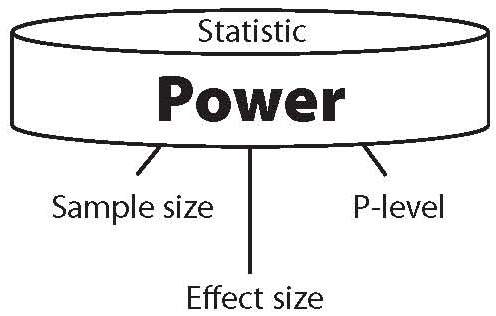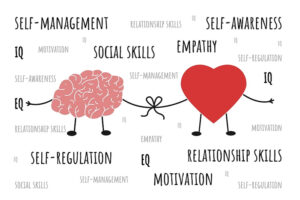
Research is a systematic process of development and assessment of all the findings Research is a process to discover new knowledge to find answers to a question as it conducts experiments or observations and also records data carefully and consistently.
The word research has two parts re (again) and search (find) which denote that we are taking up an activity to look into an aspect once again or we want to look for some new information about something, research comprises defining and redefining problems, formulation of hypothesis; collection, organizing and evaluation of data; and reaching conclusions.
It is a prearranged / structured enquiry (a formal step by step method or sequence to take up research activity is developed to ensure correctness of data and validity of processes)The degree of formality, rigorousness, verifiability and general validity of scientific methods that helps in establishing the results and acceptable scientific methodology to solve problems, It should create new knowledge that is generally applicable.
Research helps n generating outcomes and should be such that they are not specific to particular issue or a situation but are much more generalized for application to comparable issues). It is a creative process to develop better understanding of mankind, social and cultural and economic issues.
It has a special place because Research is a systematic search for information and new knowledge. It covers topics in every field of science and perceptions of its scope and activities are unlimited. The classical broad divisions of research are: basic and applied research. The basic research is necessary to generate new knowledge and technologies to deal with major unresolved health problems. On the other hand, applied research is necessary to identify priority problems and to design and evaluate policies and programs that will deliver the greatest health benefit, making optimal use of available resources.
It is said that the power of research in science cannot be overstated. It is through research that scientific knowledge is expanded, theories are tested, and new discoveries are made it helps in advancing scientific knowledge: Research is the primary means by which scientific knowledge is advanced. It allows scientists to explore new ideas, theories, and concepts, leading to a deeper understanding of the natural world and the laws that govern it , it also Testifies the hypotheses and theories and thus providing a platform for testing hypotheses and theories that can be done through rigorous experimentation of data andanalysing the researchers so that it can validate or refute existing theories, leading to the refinement and evolution of scientific understanding. Due to this power it is driving innovation and technological advancements, Research being the science that drives innovation and technological advancements. It leads to the development of new technologies, materials, and processes that have practical applications in various industries, such as medicine, energy, and communication that has solved complex problems as research in science is instrumental in solving and addressing societal challenges. It provides evidence-based solutions to issues related to health, environment, climate change, and more. By this conduct research, scientists can identify the root causes of the problems and develop effective strategies for mitigation or resolution.
The research is a collaboration which is interdisplinary in science and often requires collaboration across different disciplines. This interdisciplinary approach brings together experts from various fields to tackle complex problems and explore new frontiers of knowledge. It encourages the exchange of ideas, methodologies, and perspectives, leading to innovative breakthroughs it has a forming evidence-based on all the decision-making skills.
Research in science provides the foundation for evidence-based decision-making. Policymakers, government agencies, and organizations rely on scientific research to inform their decisions, policies, and regulations. This ensures that decisions are based on reliable data and have a solid scientific basis.
we need touse statistical or other appropriate methods to analyze your data. Determine whether your results support or refute your hypothesis and also Interpret the meaning of our data and results fully, in the context of your hypothesis. Discuss any implications and limitations. It should be kept in mind that the research findings should be peer reviewed and the papershall typically undergo by experts in the field with full publication ethics and feedbacks.
One should fully disseminate the findings at scientific conferences, seminars, and workshops to share your work with the scientific community. This can lead to valuable feedback and collaboration opportunities. An ethical guideline in research, including obtaining informed consent for human or animal subjects, maintaining data integrity, and ensuring responsible conduct in research and scientific research often involves replication studies to confirm the validity of findings. This process strengthens the credibility of research that will lead to the continuous learning so that you are updated with the latest developments in your field and be open to revising your research in light of new evidence. Scientific research is an iterative process, and it contributes to the accumulation of knowledge in various scientific disciplines. It’s important to stay curious, persistent, and rigorous in your pursuit of scientific understanding.
Research is linked to all disciplines as discussed but its main role is with science as scientific community is always been the main for the advancements and updates in detail.
The main debate between focusing on basic science and applied science to address immediate problems is a longstanding one, and both approaches have their merits. As there are the two the Basic Science: Fundamental Understanding: Basic science aims to expand our fundamental understanding of the natural world. It explores the underlying principles, mechanisms, and relationships that govern various phenomena and is the Knowledge Foundation, It lays the groundwork for future scientific advancements by building a broad knowledge base. Many applied solutions wouldn’t be possible without the foundational research conducted in basic science. These Basic researches often leads to unexpected discoveries and breakthroughs that can have far-reaching implications, even if they were not initially pursued for practical purpose called as Serendipity and it is also dependent on the long-term perspective of the future and its orientation as its benefits may not be immediately apparent. These orientations are the applied Science andproblem Solving, applied science is focused on solving immediate, real-world problems. It takes the existing knowledge generated through basic science and applied to all the addressed practical issues, such as developing new technologies, medicines, or engineering solutions, tangible Benefits: Applied science can provide tangible and often quicker solutions to pressing challenges, such as developing vaccines, addressing environmental issues, or improving public health.
The main and the primary goals of scientific research is to advance our understanding of the natural world. This knowledge is of little value if it remains confined to the researchers’ notebooks. Sharing findings through publications, conferences, and other means allows the broader scientific community to access and evaluate the work. so that the scientific program progress is often incremental. By sharing their findings, scientists provide a foundation for others to build upon. New research can extend, replicate, or refine existing knowledge, which ultimately leads to the development of more robust theories and practical applications.
These applications are peer-reviewed process and is a critical component of scientific research. Sharing research for peer review helps ensure that the work is of high quality, adheres to ethical standards, and is based on sound methodology. Peer review helps maintain the rigor and credibility of the scientific community.
But it is confined that this cannot be done alone always it is done in Collaboration between scientists from different fields and backgrounds and can lead to innovative and multidisciplinary research. This synergy can help address complex problems that require expertise from various domains.
In today’s data-driven era, sharing raw data is increasingly important. It allows for transparency, verification, and the potential for reanalysis by other researchers. Open data practices also promote the development of data repositories and their Resource allocations in situations where resources are limited, investing in applied research may be more attractive, as it can provide more immediate returns on investment. All these are started by well-educated and good Scientists as they play a crucial role in research across various fields, including natural sciences, social sciences, engineering, and more. Their role in research can vary depending on their specific discipline and area of expertise, but some common elements of a scientist’s role in research include and start from the Problem Identification, Scientists identify research questions, problems, or gaps in knowledge that need to be addressed. This is often based on observations, literature reviews, or practical needs and add them to well defined Hypothesis, these Scientists formulate hypotheses or educated guesses about the answers to the research questions. These hypotheses are testable and serve as the basis for experimental or observational research.
That is further followed by the experimental Design, in this Scientists plan and design experiments or studies to test their hypotheses. They determine the methods, tools, and data collection techniques required to gather relevant information, the Data Collection is Scientists conduct and are experimented, observational, surveyed to answer their research questions. They often use rigorous and standardized protocols to ensure the reliability and validity of their data. Data Analysis is one of the most important Scientistanalyzation and the collected data using statistical and analytical techniques to draw meaningful conclusions. They assess whether the results support or reject their hypotheses.
All these can be a vast innovation as Innovation plays a critical role in driving progress and success in various aspects of business, technology, and society. The role of innovation is multifaceted and can vary depending on the context and the specific goals of an organization or individual. By solving the problem, competitive advantages, market expansion, cost reduction, enhanced productivity, sustainability, quality improvement, creative inspiration are all interlinked to innovation some way or the other as Innovation is often about identifying and solving problems in new and creative ways. It helps organizations and individuals address challenges, improve processes, and find better solutions to existing issues as it can give businesses a competitive edge by introducing unique products, services, or processes that set them apart from their competitors. It helps companies adapt to changing market conditions and customer demands that will lead to the development of new markets or the expansion of existing ones. This can create new opportunities for growth and revenue generation.
Innovation is not only about creating new things but also about finding more efficient and cost-effective ways to achieve goals. It can lead to reduced operational costs and improved resource utilization and thetechnology and processes can significantly boost productivity, enabling individuals and organizations to accomplish more with fewer resources as it always plays a crucial role in addressing environmental and social challenges. Sustainable innovations can reduce the impact on the environment and contribute to social well-being.
The world is changing rapidly and innovation is essential for organizations to adapt to new technologies, trends, and market dynamics this has a cultural change which is leading to Encouraging innovation to a cultural shift within organizations, promoting a mindset of continuous improvement and adaptability.
All the updation and research development often involves investing in research and to create new products or services, which can lead to breakthroughs and advancements that are in the intellect for creating the trademarkswhich can be valuable assets for individuals and organizations ithas been seen that Innovators often play a crucial role in entrepreneurship by identifying opportunities, starting new ventures, and driving economic growth.
Thus, overall research is developing all sides whether it may be nation,a specific field, community helping in developing knowledge, new ideas and their establishment in deep and also choosing a global impact overall.
Thus, helping in gathering, analyze, and interpret data to draw conclusions, make predictions, and test hypotheses. It’s important to ensure that research data is accurate, reliable, and well-documented to support the research findings and you have to be true to your findings and data and never allow any replication or further investigation by other researchers. This all goes into the Ethical considerations, data privacy, and data management practices are also crucial aspects of research data handling.
admin
Related Posts

Cybersecurity and data privacy in the digital age – Geeta University
Cybersecurity and data privacy in the digital age – Geeta University The digital age has brought about a wealth of opportunities for businesses and individuals
CONSUMER BEHAVIOUR
Introduction: In the ever-changing industry of today, comprehensive consumer behavior is essential. This blog explores the complex interplay of psychological, social, and cultural elements and

The importance of emotional intelligence for students in leadership roles
The importance of emotional intelligence for students in leadership roles When it comes to the modern world, which is both dynamic and interconnected, the role


